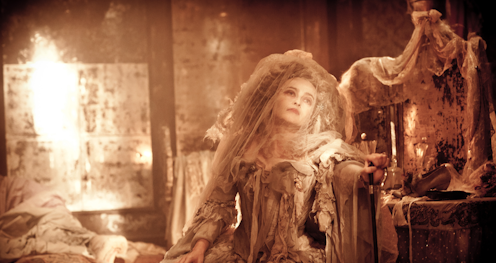class prejudices, the convict stain and a corpse-bride
- Written by Sascha Morrell, Lecturer in Literary Studies, Monash University

In our Guide to the classics[1] series, experts explain key works of literature.
In Charles Dickens’ Great Expectations (1861), everything is connected. As plots and subplots converge and hidden relations are revealed, the novel elaborates a view of society in which no individual may be considered the master of his or her own fortunes – or “expectations” in the old-fashioned sense, meaning one’s future prospects.
Great Expectations blends literary styles and genres[2] too. It fuses elements of the gothic with comic satire, realism, fairytale, crime fiction and melodrama. It can even be read as autobiographical, insofar as Dickens drew on aspects of his upbringing[3] when depicting the deprived childhood of the young orphan Pip, the novel’s protagonist and narrator.
















